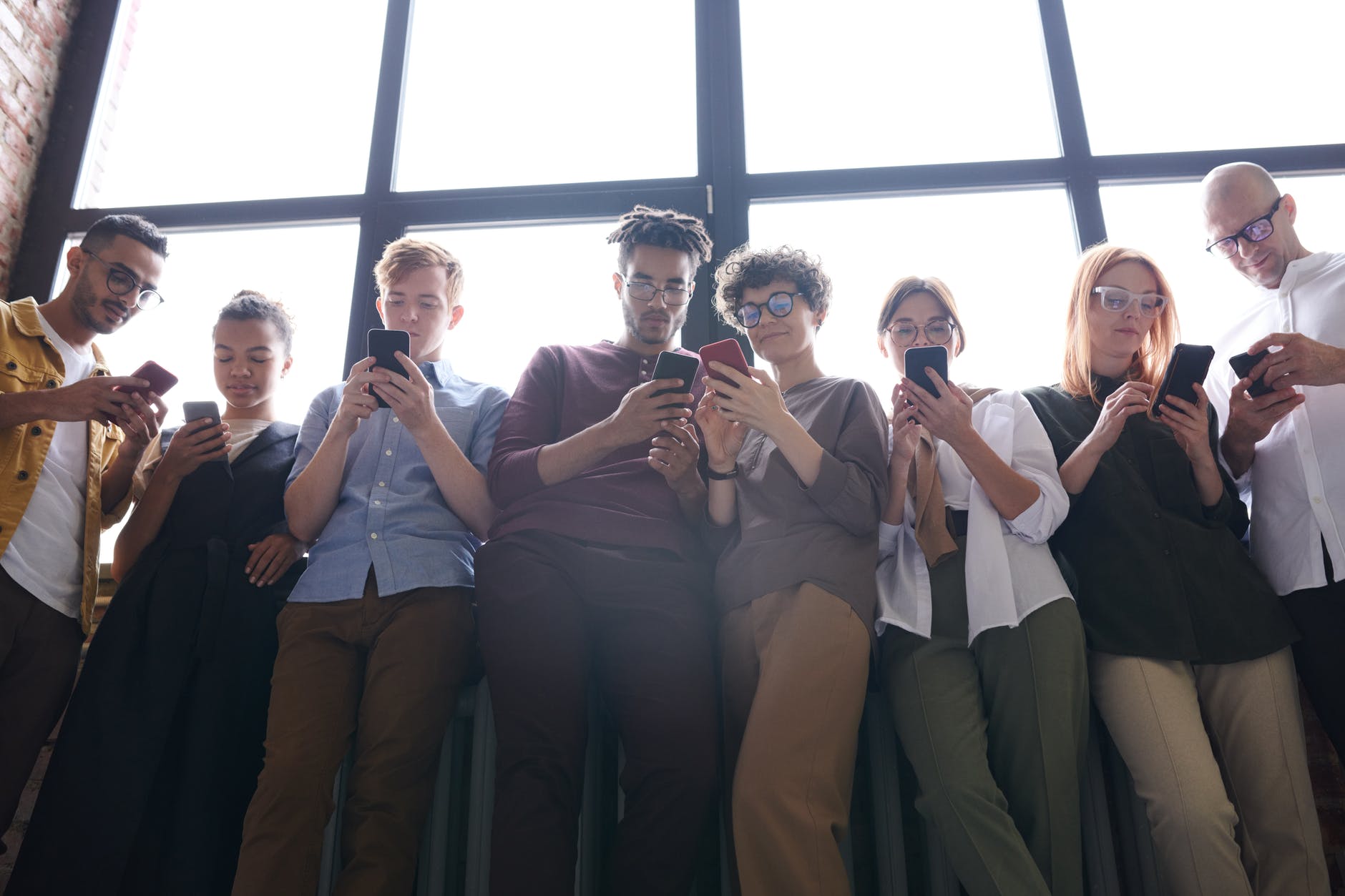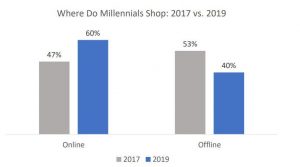


Millennials are changing the way brands are doing business, from catching onto contextual advertising trends to becoming early adopters of latest marketing channels (like Instagram) – it’s no surprise their purchasing power is projected to reach $1.4 trillion in 2020.
In this blog we’ll examine tomorrow’s trillion-dollar demographic and provide insights on how to engage the largest group of category killers across industries.
Online search
E-commerce made up nearly 10% of all retail sales in the last quarter of 2018, but that doesn’t necessarily point to the fact that all shopping is happening online. Online shopping statistics are vital for retailers to understand why a large chunk of purchase decisions still happen at the shelf. Other than shopping, digital has a huge influence on how Millennials reach the physical store – digital helps them search and find products in real-time,stay in tune with thousands of product reviews, prices, and best deals both online and offline, and gather updated product information they need to find the best products& shopping experiences.
The key is a seamless shopping transition from smartphone to personal computer to store. This also explains why this generation prefers the BOPIS (Buy Online Pick in Store) experience.


Impulse buying
Most millennial shoppers indulge in unplanned shopping – ‘throw extra items in the cart while you’re there’suggesting a demand for instant gratification and convenience over saving money on product price. Marketers have understood this and are developing millennial versions of the in-store ‘SALE’ signage that make the consumer not think twice about making a spontaneous purchase. Like related products, free shipping, or first-time buyer discounts. For example, grocery e-tailers convince shoppers to add items they might have forgotten at checkout based on items in their shopping cart.
Influenza economy
Almost three-quarters of consumers say that there has been a direct link between watching a video online and making a purchase. (Source: Adweek).


We live in a sharing economy and ‘Influencers’ have emerged as the game changers in the ecommerce space. “In 2018, 72% of major brands stated that they were outsourcing a significant portion of their marketing resources to online Influencers. Followers feel as though they’re getting a product recommendation from a friend, making them more likely to buy quickly.” (Source: weforum) Successful brands have quickly adapted their marketing strategies to include Influencer collaborations that leverage their massive following resulting in an online buzz about the brand, product information, and updates. From brand discovery to purchase drivers, online mentions and reviews will be paramount to uplifting brand & sales in 2020.
Retailers and brands are redefining their strategies as the digital landscape and shopping behaviors evolve every day. If they are to capture the purchasing power of this segment, some organizations may have to modernize their legacy systems to keep themselves from falling behind. Two things: marketing technology. The right marketing technology, combined with the right data, people, processes & partners can enable retailers and corporate brands to deliver a consistent and elevated customer experience across all sales channels, including eCommerce, mobile, social, print, and retail points of sale.
Check out our Services page for more information to get started with mapping your ideal marketing technology stack.







